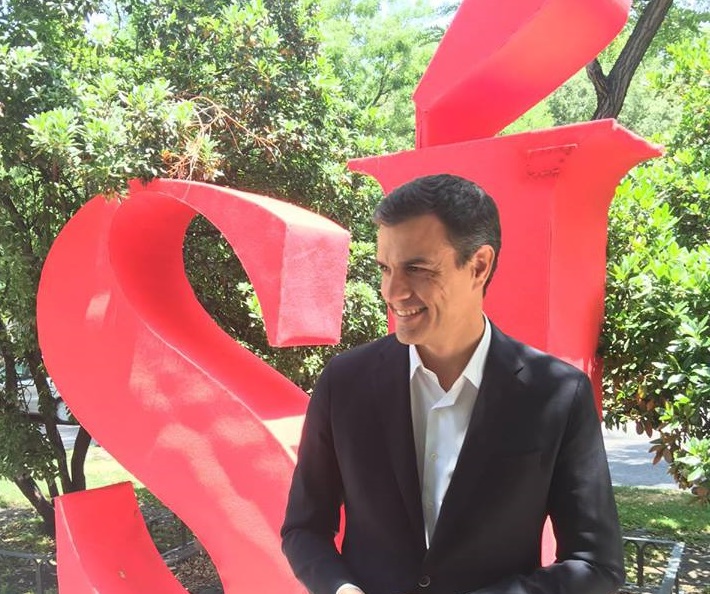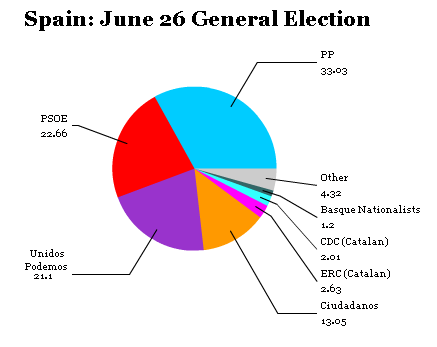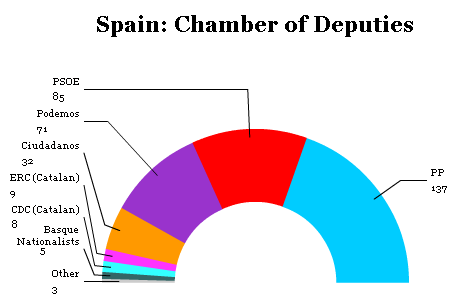
Voting under the penumbra of an ongoing political crisis in the United Kingdom following last Thursday’s referendum, in which a bare majority of British voters chose to leave the European Union, Spanish voters in Sunday’s general election — the second in seven months — fell back on established parties instead of more radical newcomers.![]()
Despite polls (and even exit polls) that predicted the rise of Unidos Podemos, a joint ticket of Spain’s far-left communists and Podemos, the newer anti-austerity movement, the ticket won the same number of seats in the lower house of Spain’s parliament, the 350-member Congreso de los Diputados (Congress of Deputies), than it had after the December general election.
Forecasts that Unidos Podemos would overtake the center-left Partido Socialista Obrero Español (PSOE, Spanish Socialist Workers’ Party) proved wrong. The PSOE, under the leadership of Pedro Sánchez, remains the largest leftist force in Spanish politics.

Unfortunately for Sánchez, the PSOE fell further behind the governing center-right Partido Popular (PP, the People’s Party) of prime minister Mariano Rajoy, which won 137 seats — a 14-seat increase since the December 2015 elections. Those gains came mostly as a result of record-low turnout and a subtle migration back to Rajoy’s party from the upstart, liberal Ciudadanos, which lost eight seats in last Sunday’s voting.
So what next? In an election where voters largely returned the same verdict, Spain’s political class is now looking at another round of coalition talks as a country with a traditional two-party system now copes with four major parties.
At the heart of these talks, however, is the PSOE, which is now positioned as the leading swing vote between Spain’s conservatives and Spain’s hard left. No matter what comes next for Spain, the PSOE will almost certainly determine the outcome.
So as Spain’s political leaders get down to the business of coalition talks in the days and weeks to come, the most important factor to keep in mind are the PSOE’s political incentives (and, to a lesser degree, Sánchez’s incentive to remain PSOE leader in the hopes of winning a future election). Continue reading PSOE’s incentives point to PP-Ciudadanos minority government in Spain
